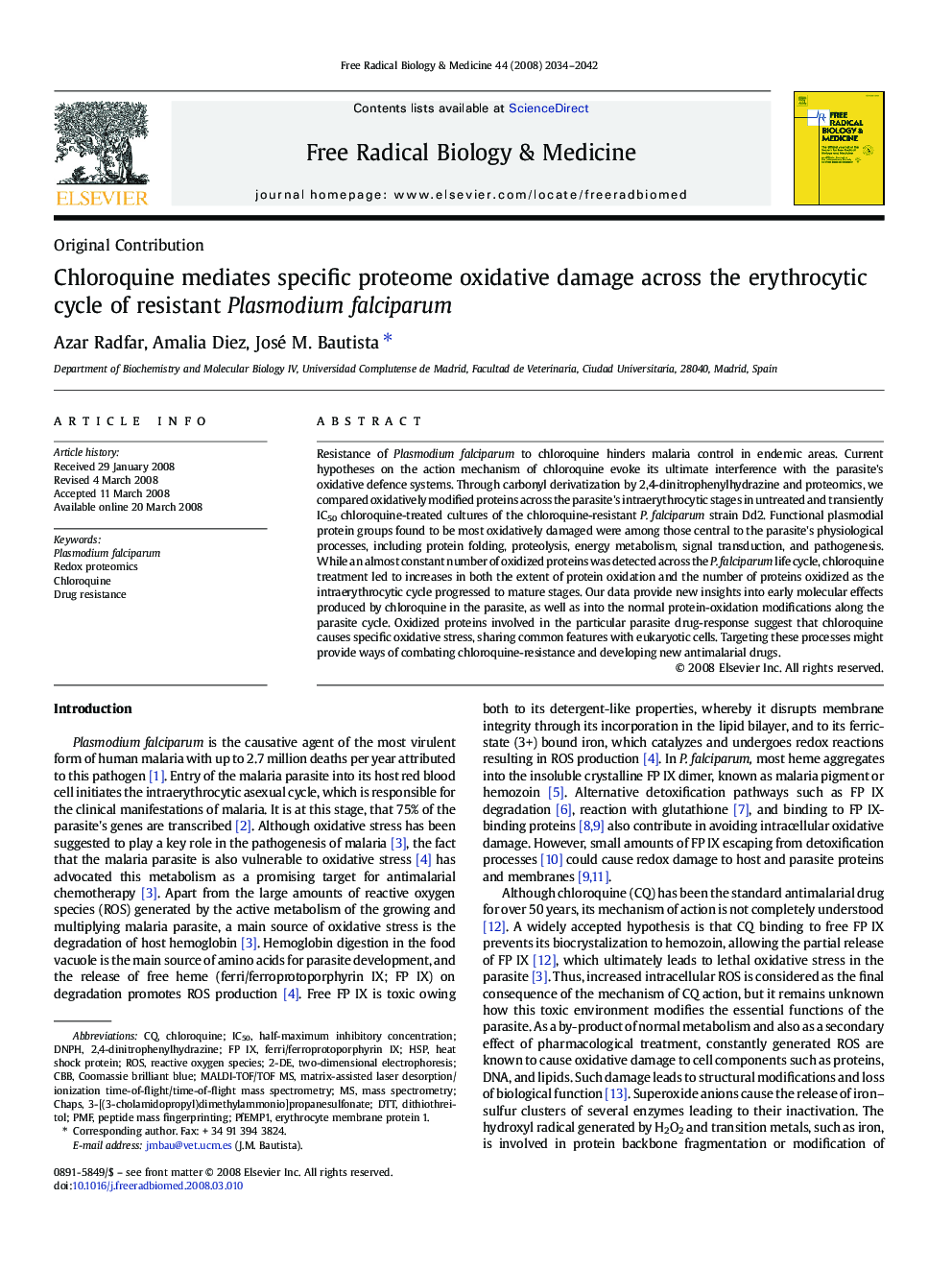| Article ID | Journal | Published Year | Pages | File Type |
|---|---|---|---|---|
| 1910969 | Free Radical Biology and Medicine | 2008 | 9 Pages |
Resistance of Plasmodium falciparum to chloroquine hinders malaria control in endemic areas. Current hypotheses on the action mechanism of chloroquine evoke its ultimate interference with the parasite's oxidative defence systems. Through carbonyl derivatization by 2,4-dinitrophenylhydrazine and proteomics, we compared oxidatively modified proteins across the parasite's intraerythrocytic stages in untreated and transiently IC50 chloroquine-treated cultures of the chloroquine-resistant P. falciparum strain Dd2. Functional plasmodial protein groups found to be most oxidatively damaged were among those central to the parasite's physiological processes, including protein folding, proteolysis, energy metabolism, signal transduction, and pathogenesis. While an almost constant number of oxidized proteins was detected across the P. falciparum life cycle, chloroquine treatment led to increases in both the extent of protein oxidation and the number of proteins oxidized as the intraerythrocytic cycle progressed to mature stages. Our data provide new insights into early molecular effects produced by chloroquine in the parasite, as well as into the normal protein-oxidation modifications along the parasite cycle. Oxidized proteins involved in the particular parasite drug-response suggest that chloroquine causes specific oxidative stress, sharing common features with eukaryotic cells. Targeting these processes might provide ways of combating chloroquine-resistance and developing new antimalarial drugs.
